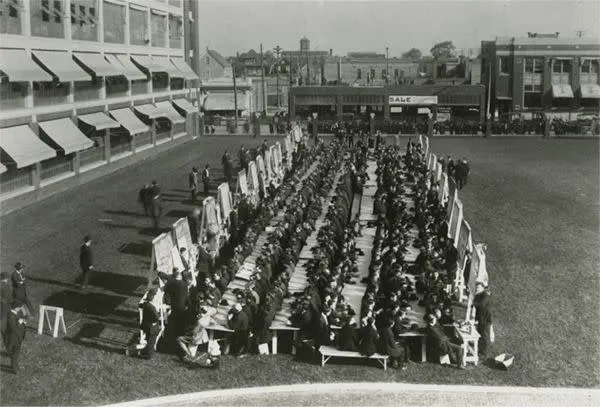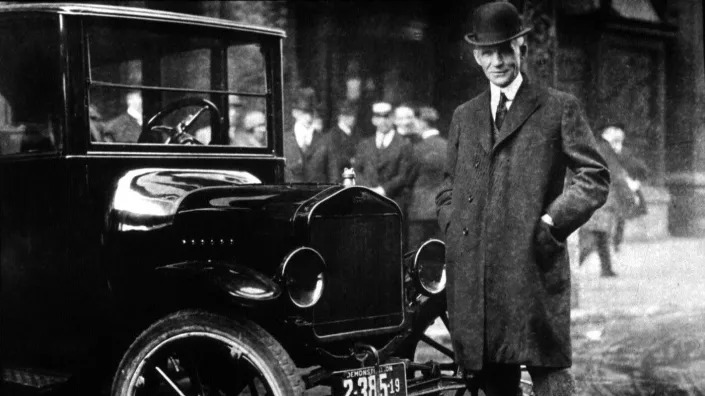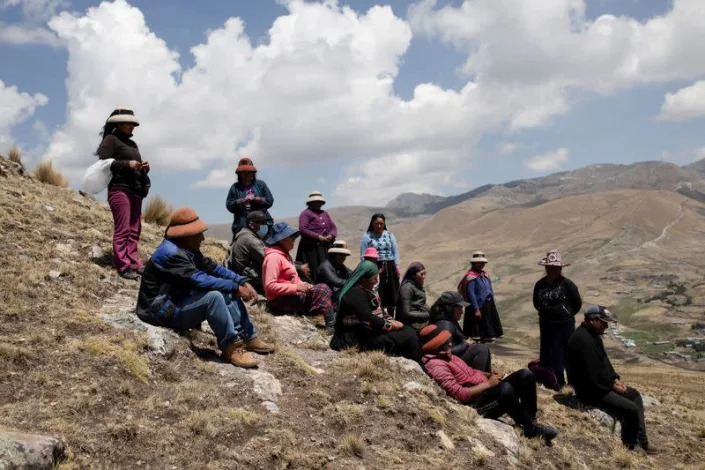'Excluded, humiliated and degraded’: Case of Quebec teacher removed for wearing hijab is ‘disturbing’ for all Canadians

A person wearing a mask with a graphic protesting Quebecs Bill 21 records on their phone during a rally against that law, after a teacher was removed from her position because she wears a hijab, in Chelsea, Que., on Tuesday, Dec. 14, 2021. Bill 21 bans public sector workers who are considered to be in positions of authority, including teachers, from wearing religious symbols while working. THE CANADIAN PRESS/Justin Tang
Sakeina Syed
·Contributor
Fri, December 24, 2021
After a teacher in Chelsea, Quebec was told she had to be removed from her role for wearing a hijab, Canadians are expressing concern and outrage.
Fatemeh Anvari was told she had to move to a position outside the elementary school classroom she had been working in due to Bill 21, a Quebec secularism law that bars some civil servants from wearing religious symbols — like Anvari’s hijab.
Since her removal, there has been increased outcry from citizens and politicians. Hundreds gathered in protest on Tuesday in Chelsea, expressing support for Anvari. Meanwhile, Members of Parliament, Senators, and city councillors have been expressing their condemnation of the law.
While members of the Canadian Muslim community are frustrated by the news, they are less surprised.
It’s shocking that Canadians are looking at this incident and are surprised by it. This is exactly what we’ve been saying since Bill 21 had been passed. We’ve been saying what the drastic effects of it could be, and sadly now we’re seeing them.Fatema Abdalla, Communications Coordinator for the National Council of Canadian Muslims (NCCM)
“Throughout the nation, Muslims across Canada are frustrated and disturbed by this bill, and are wanting to do more and take more action,” she said.
The NCCM is calling for the federal government to intervene in the legal challenge against Bill 21. Abdalla says they have yet to hear of this intervention.
In a recent press conference, Prime Minister Justin Trudeau said that despite his opposition to the law, the government would not be stepping in. Trudeau said that he wished to avoid a fight over jurisdiction between Ottawa and Quebec, and would leave the matter of making the case to “Quebeckers themselves.”
Liberal MP Salma Zahid released a statement this week saying it was time for the federal government to step in: “To date, the challenge has come from civil society. But as the party that brought the Charter of Rights and Freedoms to Canada, as a government that champions human rights around the world, we cannot allow the weight of this fight to be carried by civil society alone.”
What does the law mean for Muslims and other religious groups?
The law, known as Bill 21, is officially titled “An Act respecting the laicity of the State,” and it bars certain civil servants, including teachers, from wearing religious symbols in an effort to impose state secularism.
Abdalla said the NCCM has been fighting Bill 21 “since the day it was passed,” and has been engaged in an ongoing legal challenge of the bill since 2019. In collaboration with the Canadian Civil Liberties Association (CCLA), they have been challenging the constitutionality of the bill.
Alongside this, the groups were pushing for a temporary suspension of the law until it was reviewed by the courts. However, this request was denied, and the appeals process is ongoing.
Noa Mendelsohn Aviv, Director of the Equality program at the CCLA, spoke to Yahoo News Canada about the organization’s ongoing objection to the law.
“The harms that are happening are both to fundamental rights — the right to equality is being limited, the right to dignity, and of course to freedom of religion,” said Aviv. She added that the law violates “arguably a whole slew of other rights” on top of these: “People’s livelihoods and professions and career aspirations have been interfered with because of who they are and how they practice.”
Aviv said that when Bill 21 was “rushed through the National Assembly” in 2019, the CCLA filed their challenge within 24 hours.
“When we filed, it it was already clear to us that if people who wore religious symbols could not be hired into their professions or make a move within their professions, even those who were grandfathered in, that this was going to have a huge impact on Muslim women, and potentially also on some others, like religious Jewish men and women, Sikh men and women,” she said.
“Excluded and humiliated and degraded”
During the hearings late last year, Aviv says many people testified about the ways the law had already impacted their lives. These included financial impacts, jeopardized family stability, and emotional repercussions.
“One person talked about wanting to actually be a person who wears hijab — wanting to be her social, kind, caring self — and work with people who would understand that it could break down barriers. That people could see her and know her and understand.
Some of the moving testimony that was heard at the hearing was from women who talked about feeling like a second class citizen, about feeling excluded and humiliated and degraded.”
Masla Tahir is an activist in her final year of university, set to enter law school next year. She founded the organization My Hijab My Right as a response to laws restricting Muslim women’s clothing around the world, including in Belgium, France, and Canada.
Tahir told Yahoo News that hearing about Anvari’s removal from her position elicited a feeling of “helplessness.”
“Despite our activism work or our community engagement work, the bill is still in place. The power really lies within the federal government’s ability to intervene and make this stop, or it’s going to be dragged on in court,” she said.
Tahir said that while the ongoing legal challenges are occurring, it could take years: “In the meantime, it’s Muslim women who are going to be impacted negatively.” She cited the economic impacts that set the women, their families, and their livelihoods at a disadvantage.
She says that the recent events in Quebec, and the existence of the law, are particularly demoralizing in light of her own family’s perspective on coming to Canada.
My mom specifically chose Canada for us to move to because she wanted to raise her daughters in a country where there were equal rights for men and women, where women were given equal opportunity to flourish and follow their dreams.Masla Tahir, founder of My Hijab My Right
“Knowing that Bill 21 exists, and is stealing Muslim women’s dreams,” leaves her wordless.
Like Abdalla, Tahir is unsurprised that Bill 21 has impacted Anvari’s life and the lives of other Quebec women, an outcome she has been speaking out about. But seeing the concerns she’s been voicing be confirmed is no consolation.
“We knew that something like this would happen, but that doesn’t make it hurt any less.”









